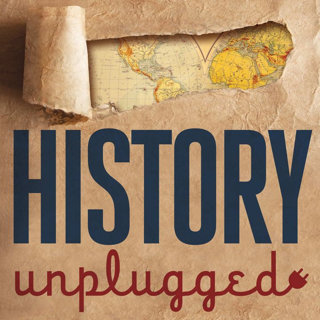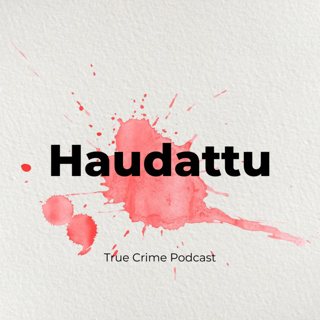
How Ancient Religions Affect What We Do and Don’t Eat in 2023
Religious beliefs have been the source of food "rules" since Pythagoras told his followers not to eat beans (they contain souls), Kosher and Halal rules forbade the shrimp cocktail (shellfish are scavengers_, and the Catholic church forbade its peoples from eating meat on Fridays (fasting to atone for committed sins). Rules about eating are present in nearly every American belief, from high-control groups that ban everything except air to the infamous strawberry shortcake that sated visitors to the Oneida Community in the late 1800s.To explore the intersection of religion and modern diet is Christina Ward, author of “Holy Food: How Cults, Communes, and Religious Movements Influenced What We Eat.” The explosion of religious movements since the Great Awakenings that birthed a cottage industry of food fads and cookbooks. Ward uncovers the interconnectivity between obscure sects and communities of the 20th Century who dabbled in vague spirituality and used food to both entice and control followers.See omnystudio.com/listener for privacy information.
2 Marras 202338min

Life in Rome at the Very Height of Its Power
The Pax Romana has long been shorthand for the empire’s golden age. Stretching from Caledonia to Arabia, Rome ruled over a quarter of the world’s population. It was the wealthiest and most formidable state in the history of humankind.Today we are speaking with Tom Holland, author of “Pax: War and Peace in Rome’s Golden Age” to explore Rome at the height of its power. From the gilded capital to realms beyond the frontier, we see ancient Rome in all its glory and cruelty: Nero’s downfall, the destruction of Jerusalem and Pompeii, the building of the Colosseum and Hadrian’s Wall, and the conquests of Trajan. Looking at the lives of Romans both ordinary and spectacular, from slaves to emperors, we see that Roman peace was the fruit of unprecedented military violence.See omnystudio.com/listener for privacy information.
31 Loka 202337min

How Russians Survive the 900-Day-Long Siege of Leningrad
The first year of the siege of Leningrad that began in September 1941 marked the opening stage of a 900-day-long struggle for survival that left over a million dead. The capture of the city came tantalizingly close late that year, but Hitler paused to avoid costly urban fighting. Determined to starve Leningrad into submission, what followed was a winter of unimaginable suffering for ordinary citizens and defenders alike. First-hand accounts from Soviet and German soldiers, many never previously published, together with those of the civilians trapped in the city detail the relentless specter of death which defined life in and around Leningrad. Today’s guest is Prit Buttar, author of “To Besiege a City: Leningrad 1941-42.” Personal vignettes give a glimpse into the reality of life in a city under siege. The teenage volunteer climbers, weak from hunger, scaling the slender spire of the Peter and Paul Fortress to shroud it in camouflage as the German bombers circle overhead like vultures. Or the soldier trombonist completing a long day on the front line to perform Shostakovich’s epic Seventh Symphony alongside a starving and sickly orchestra – an act of defiance broadcast to defenders and attackers alike.See omnystudio.com/listener for privacy information.
26 Loka 202347min

The Origins of the KKK and its First Death in the 1870s
The Ku Klux Klan was arguably America’s first organized terrorist movement. It was a paramilitary unit that arose in the South during the early years of Reconstruction. At its peak in the early 1870s, the Klan boasted many tens of thousands of members, no small number of them landowners, lawmen, doctors, journalists, and churchmen, as well as future governors and congressmen. And their mission was to obliterate the small but growing economic and political power of newly emancipated black Americans and their white allies, often by the most horrifying means imaginable. To repel the virulent tidal wave of violence, President Ulysses S. Grant waged a two-term battle against both armed southern enemies of Reconstruction and northerners seduced by visions of post-war conciliation, testing for the first time the limits of the federal government in determining the extent of states' rights. To discuss this early history of reconstruction is today’s guest, Fergus M. Bordewich, author of “Klan War: Ulysses S. Grant and the Battle to Save Reconstruction.” We explore the hamlets of the former Confederate States and the marble corridors of Congress, analyzing key figures such as crusading Missouri Senator Carl Schurz and the ruthless former slave trader Nathan Bedford Forrest.See omnystudio.com/listener for privacy information.
24 Loka 202339min

A Nazi Defector Revealed Germany’s Infiltration in All Major Governments in His 1945 Memoir
Heinrich Pfeifer was a senior member of the Nazi deep state who defected in 1938. He wrote his memoirs in 1945, with the goal of describing the inner workings of Nazi intelligence with enough detail to keep any of the members from escaping justice from the encroaching Allies. However, he was assassinated in 1949 after a pro-Nazi hit squad killed him, and copies of his work were mostly destroyed. However, today’s guest, Robert Temple, was able to obtain a copy and recently translated it to English. Temple is author of Drunk On Power: A Senior Defector’s Inside Account of the Nazi Secret Police State. It is the first complete description of the Nazi “Deep State” by its most senior defector, Pfeifer. We discuss a complete X-Ray of the structure of the Nazi Deep State and describe the international infiltration of Nazis into key institutions in every country in the world.See omnystudio.com/listener for privacy information.
19 Loka 202346min

From Orphan to RAF Hero
Many of the WW2 generation faced hardship in their youth (they did spend their childhood in the Great Depression), but few had as bad of an early life as Denis Elliott, who became an RAF Flight Lieutenant. At age three he was placed in a brutal and abusive orphanage in London and was later subject to beatings by his first foster father. It wasn’t until the Second World War that everything in Denis’s life began to change — he finally overcame the lack of confidence and self-esteem that had plagued his childhood in Kent and went on to become a skilled, confident, brave pilot flying operations against Japanese forces in Burma, Malaya and Thailand.He spent two stints serving in the RAF, which saw him posted across Africa, the Middle East, the Far East and Europe, flyingearning to flying B-24 Liberators and Avro Lancasters.Today’s guest is Phillip Martin, author of “From Orphan to High-Flyer.” We discuss these stories, along with those of Denis’s personal growth, friendship and overcoming adversity.See omnystudio.com/listener for privacy information.
17 Loka 202338min

The Life and Tragic Death of R101, The World’s Largest Flying Machine
The tragic story of the British airship R101—which went down in a spectacular hydrogen-fueled fireball in 1930, killing more people than died in the Hindenburg disaster seven years later—has been largely forgotten. But airships, those airborne leviathans that occupied center stage in the world in the first half of the twentieth century, were a symbol of the future. R101 was not just the largest aircraft ever to have flown and the product of the world’s most advanced engineering—she was also the lynchpin of an imperial British scheme to link by air the far-flung areas of its empire from Australia to India, South Africa, Canada, Egypt, and Singapore. No one had ever conceived of anything like this. R101 captivated the world. There was just one problem: beyond the hype and technological wonders, these big, steel-framed, hydrogen-filled airships were a dangerously bad idea.To tell the story of this disaster is today’s guest, S.C. Gwynne, author His Majesty's Airship: The Life and Tragic Death of the World's Largest Flying Machine. We discuss a number of characters, including Lord Christopher Thomson, the man who dreamed up the Imperial Airship Scheme and then relentlessly pushed R101 to her destruction; Princess Marthe Bibesco, the celebrated writer and glamorous socialite with whom he had a long affair; and Herbert Scott, a national hero who had made the first double crossing of the Atlantic in any aircraft in 1919—eight years before Lindbergh’s famous flight—but who devolved into drink and ruin.See omnystudio.com/listener for privacy information.
12 Loka 202345min

The Postwar Lives of WW2 Leaders, Both Axis and Allies
Check out this episode sample from James Early's "Key Battles of American History," In this episode, which wraps up a season devoted to World War 2 in the European Theatre, hosts James Early and Sean McIver follow a long-established Key Battles tradition by giving brief overviews of the postwar lives and careers of the major leaders, Axis and Allies, discussed in the series.Subscribe to Key Battles of American History!Apple Podcasts: https://apple.co/3nCfZZySpotify: https://spoti.fi/3nIwO5cListen to more episodes of Key Battles of American History!The Longest Day: D-Day and the Normandy Campaign: https://apple.co/46jPeuw / https://sptfy.com/P2g7Saving Private Ryan: https://apple.co/3Q9z0i4 / https://sptfy.com/P2g6 Hitler’s Last Gambit: The Battle of the Bulge: https://apple.co/3tprLJN / https://sptfy.com/P2g4See omnystudio.com/listener for privacy information.
11 Loka 202320min






















